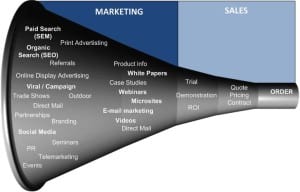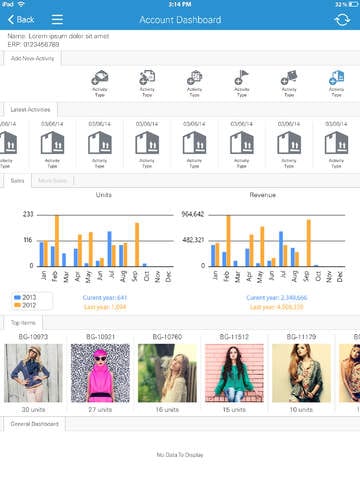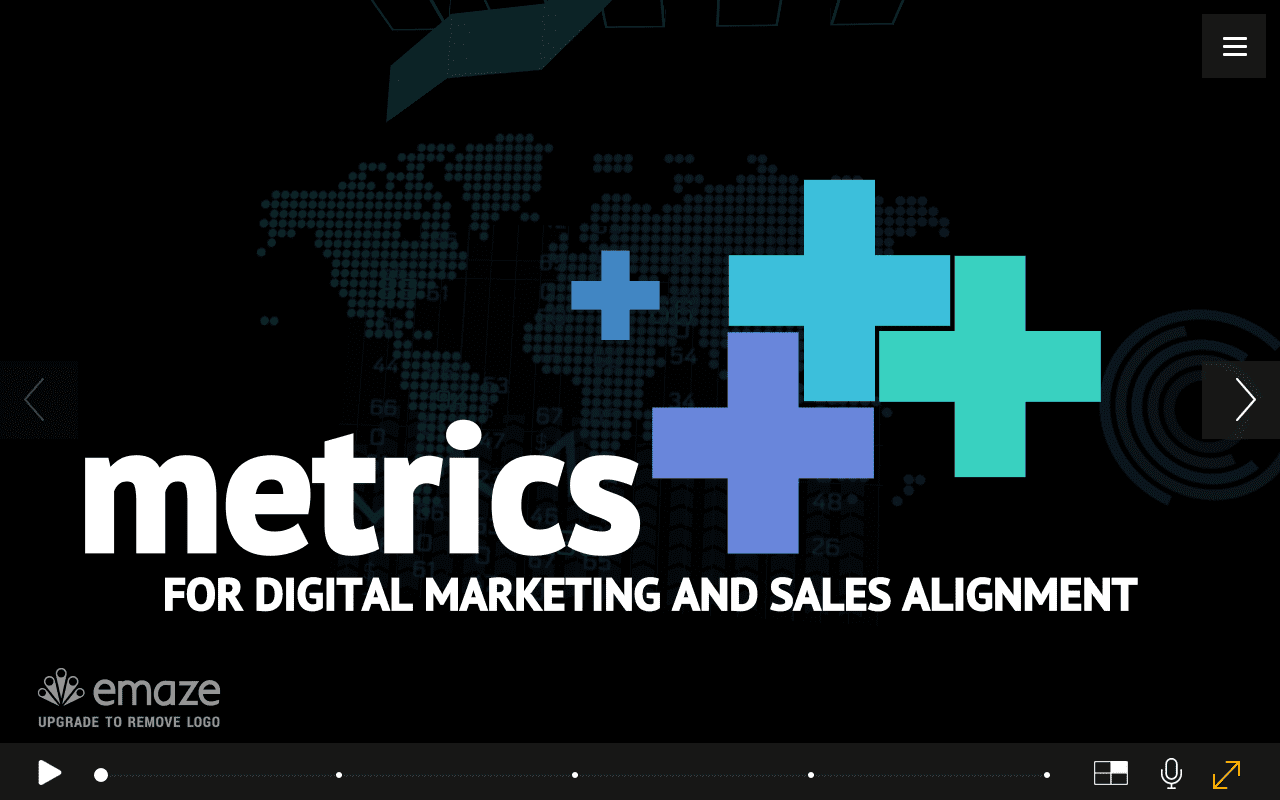Sales metrics should not be alien to digital marketing teams
As digital marketers, it is our job to drive sales for our business, correct? Wait, but isn’t that the job of the sales department..? As it turns out, with Smarketing we have many of the same goals and objectives so it makes sense that we would work together to form a more united team and focus on the same measurements to close our deals.

I realize this is easier said than done, but if you look at the statistics: according to an Aberdeen report, companies that were successful in aligning their sales and marketing teams were able to increase revenue by 20%. This is in stark comparison to those who weren’t able to align the two departments and saw a 4% decline.
Yes, it might be difficult at first but once you’ve agreed upon the metrics you all need to be measuring you’re one step closer to full alignment, increased efficiency and increased revenue.
Download Expert Member resource – Sales and Marketing Integration Guide
This guide will give you practical recommendations, based on real-world examples, showing how to get your sales and marketing teams working together more effectively. It covers best practices for processes, systems and cultural issues that you need to manage, with a focus on business-to-business organizations. .
Access the Sales and marketing integration guide
Funnel metrics for better alignment
Your conversion funnel is an essential part of your marketing plan, however your marketing efforts alone can only go so far on their own to get customers through the funnel. In the funnel process, marketing is responsible for generating many responses from their campaign, making use of a marketing automation platform (MAP), while sales are responsible for converting this traffic deeper into the funnel using a customer relation management platform (CRM).

If the two teams aren’t fully in-sync knowing what’s going on both sides of the fence, you’re in for a huge mess of miscommunication, bogus metrics, and misplaced blames. To begin to sync up to one another’s cycles it’s important to measure a few metrics side by side. When viewing all of this data in one place, it helps your decision-making in both parts, and a more united demand generation strategy.
Before I dive into which metrics you should be measuring, it’s important your team is utilizing a platform that allows you to view all of these metrics clearly and provides clear communication amongst all team members.
Pepperi is an example of a system which provides all sales team members with an integrated sales solution including a CRM, and it’s compatible with all existing ERP systems. The iPad solution displays a clear aesthetic dashboard to see all of your analytics in standard reports.

Integrated tools save you time by setting up your desired metrics once, so you can constantly check back on what’s important to you and your team. By allowing you to skim all of the results seamlessly you can visibly see your success, or if there’s an issue, you can work simultaneously to resolve it. Once you’ve implemented technology to help your teams more connected, these are the metrics you should be measuring on your dashboard:
Lead funnel velocity
Velocity is the speed at which your consumers are traveling through your funnel. You can utilize this information to optimize your lead nurturing campaigns, and effectively place your time and effort on the right prospects.
In order to take full advantage of this metric, implement date fields in your integrated solution to keep both sides up to date on major events in the timeline.
For instance, marketing will take note of the date the lead becomes marketing qualified, and pass it on to the sales reps to be converted. This is a great way to track your lead all the way through your funnel, and to learn where there may be holes in your alignment that need fixing.
There are 4 important metrics that actually make up your lead funnel velocity. The formula is as follows:

Although your analytic tool will output the data for you, it’s still important to know how they’re coming up with these numbers. Once you understand what parts of your formula can increase or decrease your overall lead funnel velocity you can improve specific segments such as the length of your sales cycle and improve the entire metric.
Sales campaign success
Just as you can pull up any data on your digital marketing campaigns to see any metrics you need, it’s also essential you have the same ability to review sales campaigns. These campaigns be it, outbound calling, email lists, etc. are essential to marketing efforts to measure and pull any of this data for their own campaigns. Once you have taken a complete look at all of the campaigns then you can make better, more informed data-driven decisions for your marketing campaigns.
Click on the image to watch more about SMetrics: http://app.emaze.com/@AOCZRQIR/smartinsights

The golden metric for Smarketers?
To ensure successful sales and marketing alignment, your golden metric is going to be your lead-to-customer percentage. This is the final metric in your funnel that tells you in one single number how effective your sales and marketing funnel is.
While the other metrics will work to tell you which stages need more work, this metric will tell you how everything is coming together.
Mimio is a company that designs and develops interactive educational products for students. They employ international leader HubSpot to help with their marketing automation and to generate more qualified leads in the field. HubSpot utilize their platform and their SalesForce integration to consolidate their resources and align their sales and marketing tasks and tools.

The straightforward integration led them from four different software technology platforms, to one integrated streamlined system that’s easy for team members to visualize and make decisions from.
Aligning your sales and marketing operations about what metrics to measure, allows everyone to feel more connected and on the same page along with ensuring more data to all. This is becoming an essential process in many companies to ensure your digital marketing team is supported by sales and vice versa. Once everyone begins playing for the same team, even though you’re focusing on different ends of the funnel you’ll find everything will just fall into place.
 Thanks to Robert Nachum for sharing his advice and opinions in this post. Robert is a growth and marketing manager at Ranky. He loves start-ups, technology and music on a vinyl. You can connect on LinkedIn or Twitter.
Thanks to Robert Nachum for sharing his advice and opinions in this post. Robert is a growth and marketing manager at Ranky. He loves start-ups, technology and music on a vinyl. You can connect on LinkedIn or Twitter.









 Thanks to Robert Nachum for sharing his advice and opinions in this post. Robert is a growth and marketing manager at
Thanks to Robert Nachum for sharing his advice and opinions in this post. Robert is a growth and marketing manager at 

